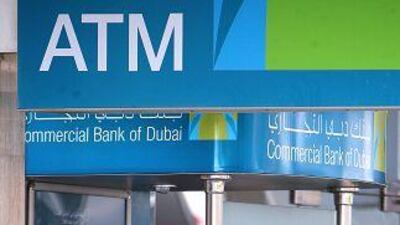First-quarter profits of regional companies are expected to show healthy growth from a year earlier, but the gains are unlikely to represent a full recovery in the local economy, analysts say. While there are many reasons to doubt a brisk return to the strong profit growth that preceded the global downturn, first-quarter performances appear to be setting the stage for a turnaround as the global economy recovers. Regional companies are expected to release their first-quarter results over the coming weeks.
"Despite the challenges, there are signs of strength in some areas of the economy," said Marios Maratheftis, the regional head of research for Standard Chartered Bank. "I think we will see rebound this year." Mr Maratheftis pointed to the industries that are central to the UAE's role as a trading centre, including tourism, trade, energy and financial services. With oil prices at between US$80 and $85 a barrel, the economy is in a stronger position than a year ago when it was around $50. Some banks have posted strong profit gains in the past week, kicking off a positive quarter for the sector. Abu Dhabi Islamic Bank was first to reveal its results, posting Dh293 million (US$79.77m) of profits, up 9.3 per cent from the same period last year. Abu Dhabi's First Gulf Bank pulled in Dh920m of profits, a rise of 23 per cent. Commercial Bank of Dubai also revealed Dh258m of profits, an increase of 10 per cent from the first quarter of last year.
"We're expecting across-the-board better first-quarter results than last year," said Germaine Benyamin, a banking analyst at HC Securities in Dubai. "It's not a turnaround, but it's better than last year." Lenders are not completely out of the woods, however. Analysts expect the rest of the year to be challenging, given that Dubai World's US$24.8 billion debt restructuring has yet to be resolved. Once a deal has been reached, local banks are likely to have to set aside more cash as a buffer against losses, eating somewhat into profits. Ms Benyamin said provisions at banks had peaked last year and would probably be lower this year.
The shipping industry, another key component of the UAE's economy, also stands to benefit from a rise in global trading as economies stage a recovery. For that reason, the first quarter should be a sunny one for the likes of the Dubai-based DP World, one of the world's largest ports operators. "There should be a general pickup," said Redwan Ahmed, an analyst at EFG-Hermes in Dubai. "The general trend has been better, but I don't think we'll see a massive rally. From here it will be a gradual recovery as trade activity returns to normal." He said he expected a "marked improvement in profits" for shipping companies in the UAE and across the Gulf. Insurance companies, which comprise about a quarter of all listed companies in the UAE, also appear to be in for better profits.
Kevin Willis, a credit analyst at Standard & Poor's, said in a recent report that premium growth was strong in the personal and retail sub-sectors as insurance companies sold more health, life and property insurance. This "reflects the growing penetration of insurance into UAE society", he said. afitch@thenational.ae bhope@thenational.ae

